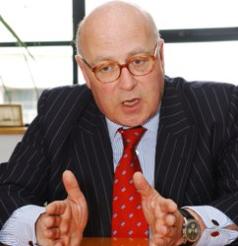The bleakest picture yet of the sector’s financial prospects has been painted by charity leaders in NCVO’s thirteenth Charity Forecast survey, with over 35 per cent reporting their organisation will reduce services and 97 per cent expecting the economic conditions within the sector to be negative in the next 12 months.
Conducted quarterly, the Charity Forecast survey asks chief executives, directors and chairs from the sector a set of ten questions centred around the economy. Five of the ten questions in the March survey show the most negative results since the survey began in 2008.
Sir Stuart Etherington, NCVO chief executive, said that the survey indicated how the “looming tide of cuts is weighing heavily on everyone’s minds”.
“The Budget brought some welcome sweeteners for the sector, but more needs to be done to ensure that voluntary and community organsiations have the support they need to continue providing vital services,” he added.
Of the 103 charity leaders who took part in the survey, 55 per cent advised that they would be reducing staff numbers in the next 12 months, while 15 per cent advised that they would increase staff. This has shown a net drop of 67 per cent since February 2008 when an average of a 27 per cent expected to increase staff.
Despite government talk of opportunities for the sector to deliver public services, some 35 per cent advised in the latest survey that they would be reducing the services that they provide, while 23 per cent advised that they would increase services. This is the first time this expectation has fallen into a negative figure (of -12 per cent) since the survey was first launched.
One respondent to the survey advised: “Funding uncertainty has always existed in our sector – what is exceptional at present is the level of cuts and the speed at which they are being implemented. Front-line services are being slashed and burnt by local authorities via their contracts with voluntary organisations.”
While the number of organisations expecting to collaborate remained largely the same as in previous surveys (at 71 per cent), Sir Stuart advised that the government must make changes to VAT legislation to allow the collaboration process.
“We urge the government to address urgently the issue of charities not being able to recover VAT on shared services, which currently presents a sizeable obstacle to effective collaboration,” he said.
“Giving charities the incentive to work together would really help many organisations to maximise their resources in these challenging times,” he added.









